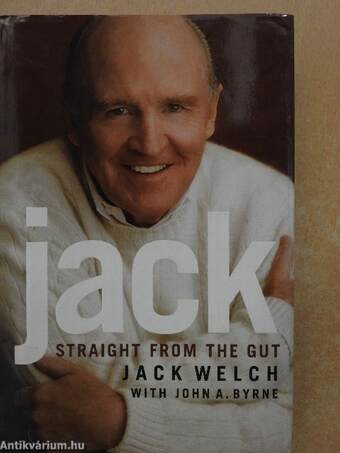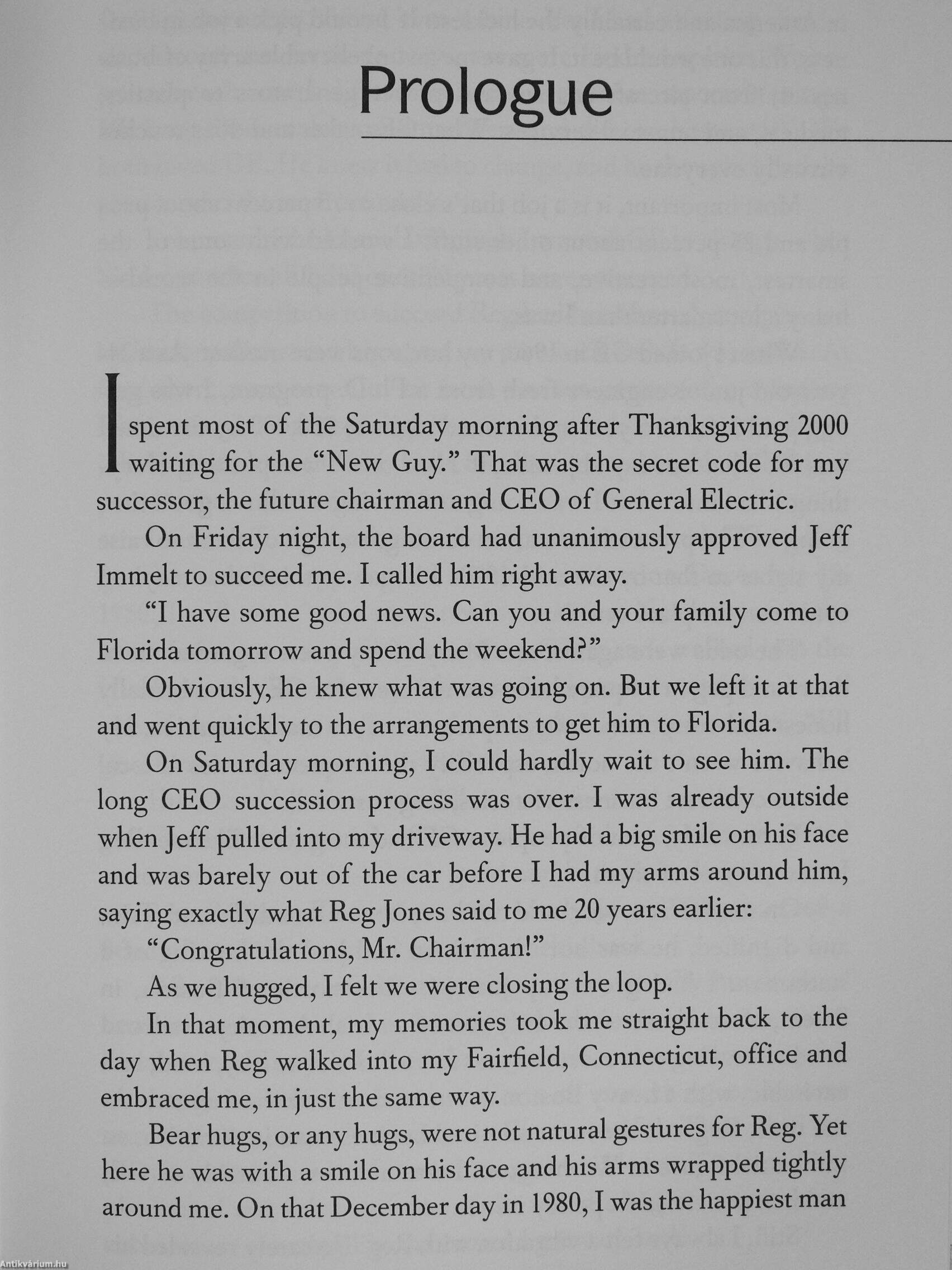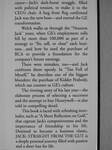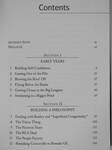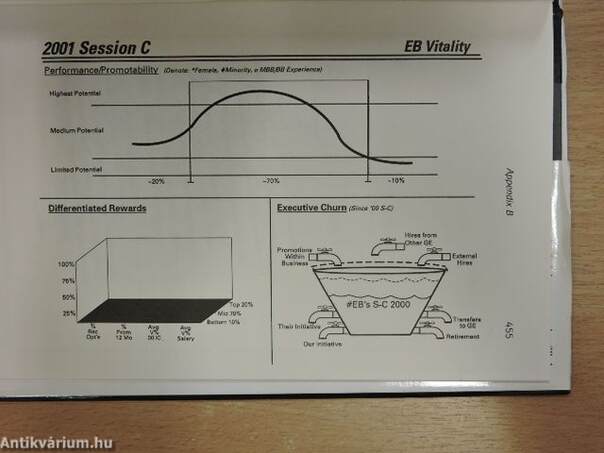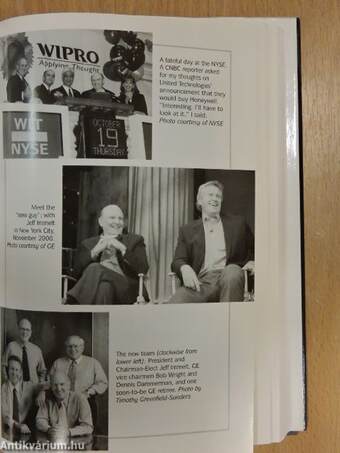1.067.081
kiadvánnyal nyújtjuk Magyarország legnagyobb antikvár könyv-kínálatát

VISSZA
A TETEJÉRE
JAVASLATOKÉszre-
vételek
Jack - Straight From the Gut
| Kiadó: | Warner Books, Inc. |
|---|---|
| Kiadás helye: | New York |
| Kiadás éve: | |
| Kötés típusa: | Ragasztott kemény papírkötés |
| Oldalszám: | 479 oldal |
| Sorozatcím: | Warner Business Books |
| Kötetszám: | |
| Nyelv: | Angol |
| Méret: | 24 cm x 16 cm |
| ISBN: | 0-446-52838-2 |
| Megjegyzés: | Fekete-fehér fotókkal, ábrákkal illusztrálva. |
naponta értesítjük a beérkező friss
kiadványokról
naponta értesítjük a beérkező friss
kiadványokról
Előszó
TovábbFülszöveg
This book is vintage Jack Welch: down to earth, powerful, and filled with common sense.
As CEO of General Electric for the past twenty years, he has built its market cap by more than $450 billion and established himself as the most admired business leader in the world. His championing of initiatives like Six Sigma quality, globalization, and e-business have helped define the modern corporation. At the same time, he's a gutsy boss who has forged a unique philosophy and an operating system that relies on a "boundaryless" sharing of ideas, an intense focus on people, and an informal, give-and-take style that makes bureaucracy the enemy.
In anecdotal detail and with self-effacing humor. Jack Welch gives us the people (most notably his Irish mother) who shaped his life and the big hits and the big misses that characterized his career.
Starting at GE in I960 as an engineer earning $10,500, Jack learned the need for "getting out of the pile" when his first raise was the same as... Tovább
Fülszöveg
This book is vintage Jack Welch: down to earth, powerful, and filled with common sense.
As CEO of General Electric for the past twenty years, he has built its market cap by more than $450 billion and established himself as the most admired business leader in the world. His championing of initiatives like Six Sigma quality, globalization, and e-business have helped define the modern corporation. At the same time, he's a gutsy boss who has forged a unique philosophy and an operating system that relies on a "boundaryless" sharing of ideas, an intense focus on people, and an informal, give-and-take style that makes bureaucracy the enemy.
In anecdotal detail and with self-effacing humor. Jack Welch gives us the people (most notably his Irish mother) who shaped his life and the big hits and the big misses that characterized his career.
Starting at GE in I960 as an engineer earning $10,500, Jack learned the need for "getting out of the pile" when his first raise was the same as everyone else's. He stayed out of the corporate bureaucracy while running a $2 billion collection of GE businesses—in a sweater and blue jeans—out of a Hilton in Pittsfield, Massachusetts.
After avoiding GE's Fairfield, Connecticut, headquarters for years. Jack was eventually summoned by then Chairman Reg Jones, who was planning his succession. There ensued one of the most painful parts of his
career—Jacks dark-horse struggle, filled with political tension, to make it to the CEO's chair. A hug from Reg confirmed Jack was the new boss—and started the GE transformation.
Welch walks us through the "Neutron Jack" years, when GE's employment rolls fell by more than 100,000 as part of a strategy to "fix, sell, or close" each business and how he used the purchase of RCA to provide a foundation for the company's fiiture earnings.
There were mistakes, too—and Jack confronts them openly. In "Too Full of Myself," he describes one of the biggest blunders: the purchase of Kidder Peabody, which ran counter to GE's culture.
The riveting story of his last year—the elaborate process of selecting a successor and the attempt to buy Honeywell—is also told in compelling detail.
This book is laced with refreshing interludes, such as "A Short Reflection on Golf," that capture Jack's competitiveness and the importance of friendship in his life. Destined to become a business classic, JACK: STRAIGHT FROM THE GUT is a deeply personal journey filled with passion and a sheer lust for life. Vissza
Témakörök
- Közgazdaságtan > Menedzserképzés, marketing
- Idegennyelv > Idegennyelvű könyvek > Angol > Szépirodalom > Regény, novella, elbeszélés
- Idegennyelv > Idegennyelvű könyvek > Angol > Közgazdaságtan > Menedzserképzés, marketing
- Szépirodalom > Regény, novella, elbeszélés > Az író származása szerint > Amerika > Amerikai Egyesült Államok
- Szépirodalom > Regény, novella, elbeszélés > Tartalom szerint > Pénz, vagyon, birtok
- Szépirodalom > Regény, novella, elbeszélés > Tartalom szerint > Életrajzi regények > Önéletrajzok, naplók, memoárok



